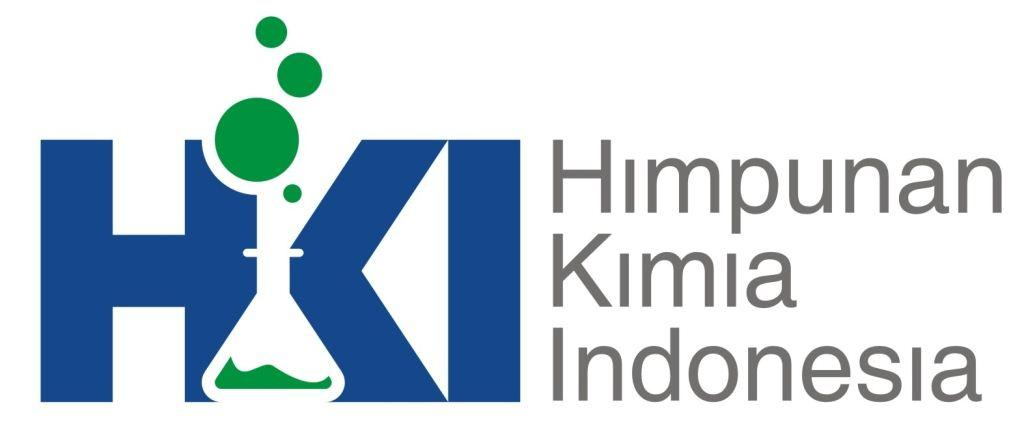The Analysis of Low-Cost Pb(II) Adsorbents using Batch Method of Solid-Phase Spectrophotometry
Abstract
Keywords
References
Atkovska K, Lisichkov K, Ruseska G, Dimitrov AT, Grozdanov A. 2018. Removal of heavy metal ions from wastewater using conventional and nanosorbents: a Review. Journal of Chemical Technology and Metallurgy. 53(2): 202–217.
Chanani ME, Bahramifar N, Younesi H. 2015. Synthesis of Fe3O4@Silica core–shellparticles and their application for removal of copper ions from water. Journal of Applied Research in Water and Wastewater. 2(2): 176–182.
Dizadji N, Anaraki NA. 2011. Adsorption of chromium and copper in aqueous solutions using tea residue. International Journal of Environmental Science and Technology. 8: 631–638.
Kasmaei AR, Naderi MN, Bahrami Z. 2017. Water pollution management in wells of zawar village for investigation of effects of nitrogen fertilizers in nitrate entry into groundwater. Journal of Applied Research in Water and Wastewater. 4(2): 354–357.
Koz B, Cevik U. 2014. Lead adsorption capacity of some moss species used for heavy metal analysis. Ecological Indicators. 36: 491–494.
Kussainova MZ, Raisa MC, Jussipbekov UZ, Temel H, Pasa S, Kaiybayeva RA, Agatayeva AA. 2018. Sorption removal of Pb2+, Cd2+, Cu2+ from diluted acid solution by chitosan modified zeolite. Journal of Chemical Technology and Metallurgy. 53(1): 94–100.
Lee T, Othman R, Yeoh FY. 2013. Development of photoluminescent glass derived from rice husk. Biomass and Bioenergy. 59: 380–392. https://doi.org/10.1016/j.biombioe.2013.08.028
Li Z, Ge Y. 2018. Application of lignin and its derivatives in adsorption of heavy metal ions in water: A Review. ACS Sustainable Chemistry & Engineering. 6: 7181–7192.
Lima SPB de, Paiva RP de e OA, Cordeiro GC, Chaves MR de M, Filho RDT, Fairbairn E de MR. 2011. Production of silica gel from residual rice husk ash. Quimica Nova. 34(1): 71–75.
Lingamdinne LP, Chang YY, Yang JK, Singh J, Choi EA, Shiratani M, … Attri P. 2017. Biogenic Reductive preparation of magnetic inverse spinel iron oxide nanoparticles for the adsorption removal of heavy metals. Chemical Engineering Journal. 307: 74–84.
Lingamdinne LP, Koduru JR, Jyothi RK, Chang YY, Yang JK. 2016. Factors affect on bioremediation if Co(II) and Pb(II) onto Lonicera Japonica flowers powder. Desalination and Water Treatment. 57: 13066–13080.
Lingamdinne LP, Singh J, Choi JS, Chang YY, Yang JK, Rama KR, Koduru JR. 2018. Multivariate modeling via artificial neural network applied to enhance methylene blue sorption using graphene-like carbon material prepared from edible sugar. Journal of Molecular Liquids. 265: 416–427.
Liu C, Li Y, Hou Y. 2019. Preparation of a novel lignin nanosphere adsorbent for enhancing adsorption of lead. Molecules. 24(2704).
Liu Z, Luo F, Ju XJ, Xie R, Sun YM, Wang W, Chu LY. 2013. Gating membranes for water treatment: detection and removal of trace Pb2+ ions based on molecular recognition and polymer phase transition. Journal of Materials Chemistry A. 1: 9659–9671.
Moradi G, Dabirian F, Rajabi L, Derakhshan AA. 2015. Preparation of aldehydic electrospun PAN mats for ammonia removal from wastewater. Journal of Applied Research in Water and Wastewater. 2(2): 170–175.
Rohmah DN, Masykuri M, Saputro S, Mahardiani L. 2018. Combination of rice husk and coconut shell activated adsorbent to adsorb Pb(II) ionic metal and it’s analysis using solid-phase spectrophotometry (SPS). IOP Conf. Series: Materials Science and Engineering, (333). https://doi.org/10.1088/1757-899X/333/1/012056
Ryan JA, Scheckel KG, Berti WR, Chaney RL, Hallfrisch J, Doolan M, Maddaloni M. 2004. Reducing children’s risk from lead in soil. Environmental Science & Technology. 1: 18–24.
Saputro S, Mahardiani L, Masykuri M, Hidayah AN. 2018. Determination of Pb2+ metal ion level in liquid waste from adsorption process by combination adsorbent of rice husk and water hyacinth charcoal using solid-phase spectrophotometry (SPS). IOP Conf. Series: Materials Science and Engineering, (333). https://doi.org/10.1088/1757-899X/333/1/012053
Saputro S, Mahardiani L, Wulandari DA. 2018. Combination of sawdust from teak wood and rice husk activated carbon as adsorbent of Pb(II) ion and its analysis using solid-phase spectrophotometry (SPS). IOP Conf. Series: Materials Science and Engineering.
Saputro S, Masykuri M, Mahardiani L, Kurniastuti D. 2018. The synthesis of corncobs (Zea mays) active charcoal and water hyacinth (Eichornia crassipes) adsorbent to adsorb Pb(II) with it’s analysis using solid-phase spectrophotometry (SPS). IOP Conf. Series: Materials Science and Engineering.
Saputro S, Yoshimura K, Matsuoka S, Takehara K, Narsito. 2009. Improved solid-phase spectrophotometry for the microdetermination of chromium (VI) in natural water. Analytical Sciences. 25: 1445–1450.
Todkar BS, Deorukhkar OA, Deshmukh SM. 2016. Extraction of Silica from rice husk. International Journal of Engineering Research and Development. 12(3): 69–74.
Torowati T, Galuh BS. 2014. Determination of limit detection and quantization of potential titration tools for uranium analysis [penentuan nilai limit deteksi dan kuantisasi alat titrasi potensiometer untuk analisis uranium]. PIN Pengelolaan Instalasi Nuklir. 13(VII): 9–15.
Veselaj T, Morina R, Gashi V, Sallaku F. 2019. Assessment of leachate and soil contamination with heavy metals around deposit sites in Podujeva and Prizren. Journal of Chemical Technology and Metallurgy. 54(5): 1020–1027.
Yang S, Kim H, Narayanan S, Mckay IS, Wang EN. 2015. Dimensionality effects of carbon-based thermal additives for microporous adsorbents. Materials & Design. 85: 520–526.
Yosofi Y, Almasi A, Mousavi SA. 2017. Studying the efficiency of anaerobic stabilization pond on removing BOD and COD and changing the sulfur compounds in wastewater of oil refine. Journal of Applied Research in Water and Wastewater. 4(1): 331–333.
Zhang Y, Zheng R, Zhao J, Ma F, Zhang Y, Meng Q. 2014. Characterization of H3PO4 treated rice husk adsorbent and adsorption of copper(II) from aqueous solution. BioMed Research International. (496878). https://doi.org/10.1155/2014/496878
DOI: 10.15408/jkv.v7i1.18363
Refbacks
- There are currently no refbacks.
Copyright (c) 2021 Sulistyo Saputro, Ashadi Ashadi, Lina Mahardiani, Nurma Yunita Indriyanti, Maria Ciptaning Sabdo Kawedhar, Wima Pudya Ajunda

This work is licensed under a Creative Commons Attribution-ShareAlike 4.0 International License.


